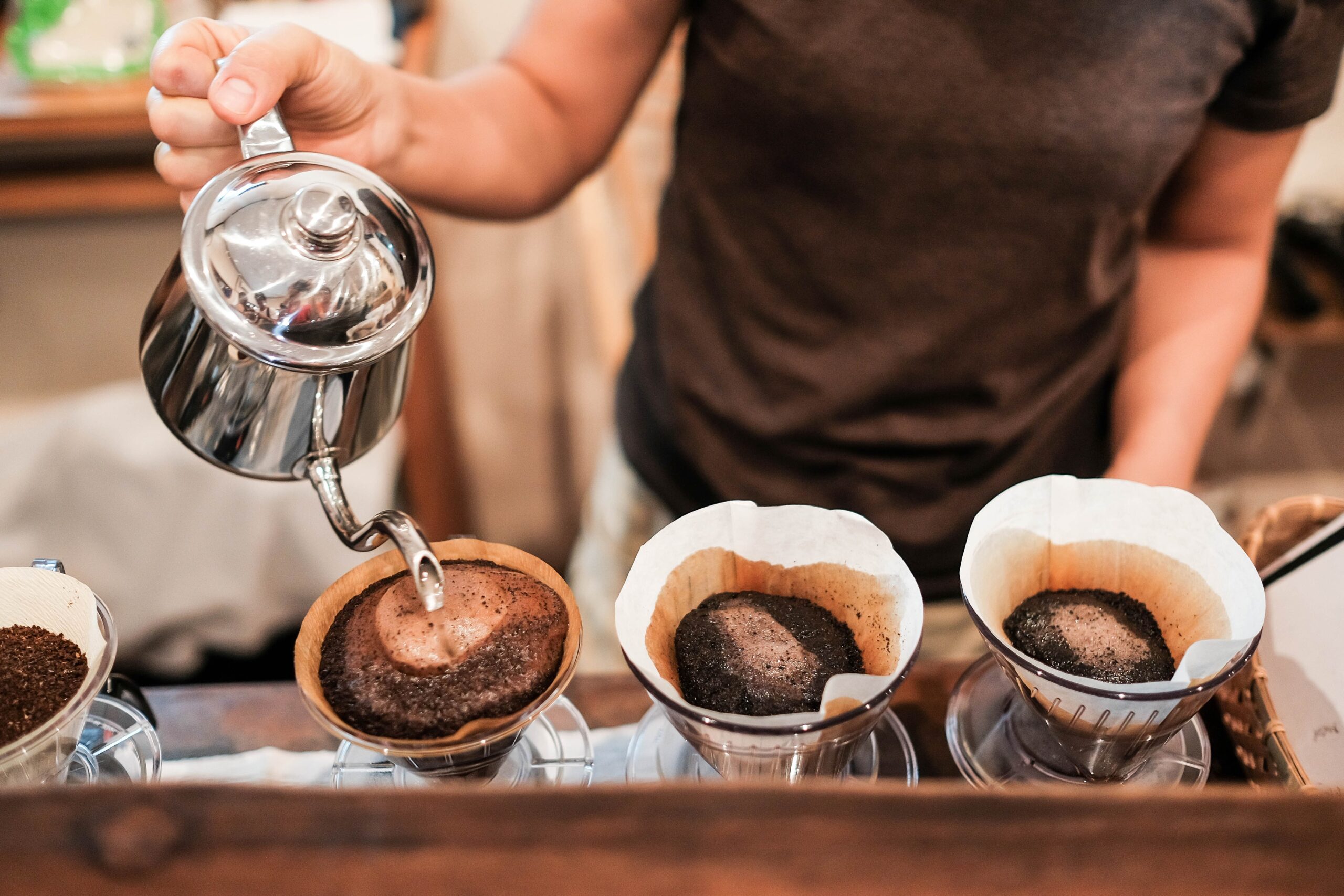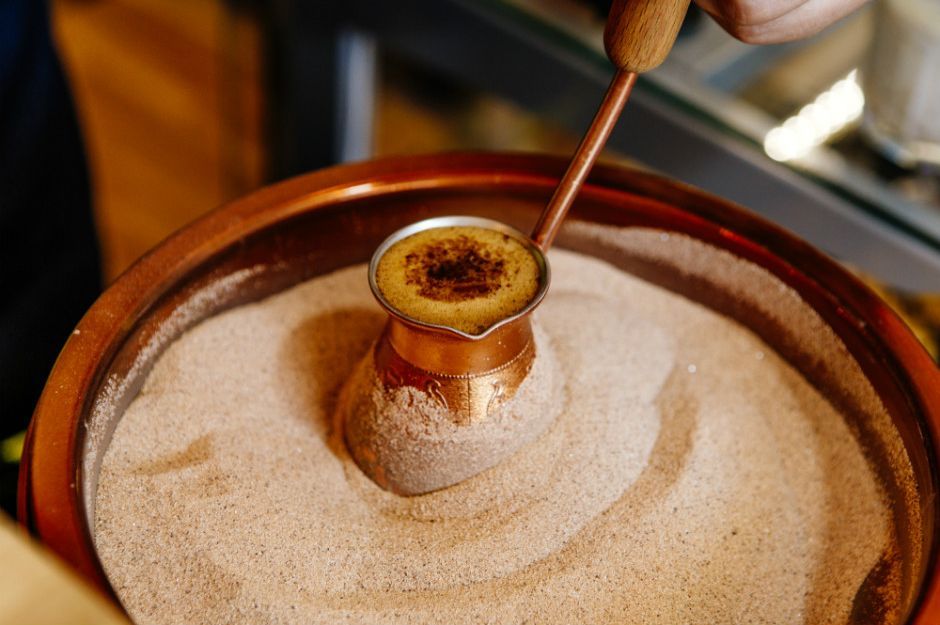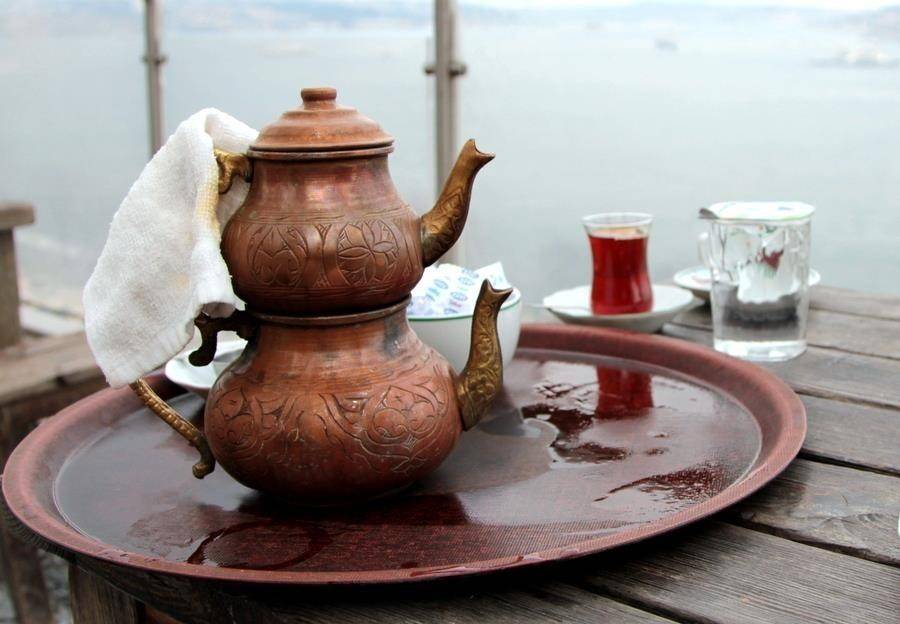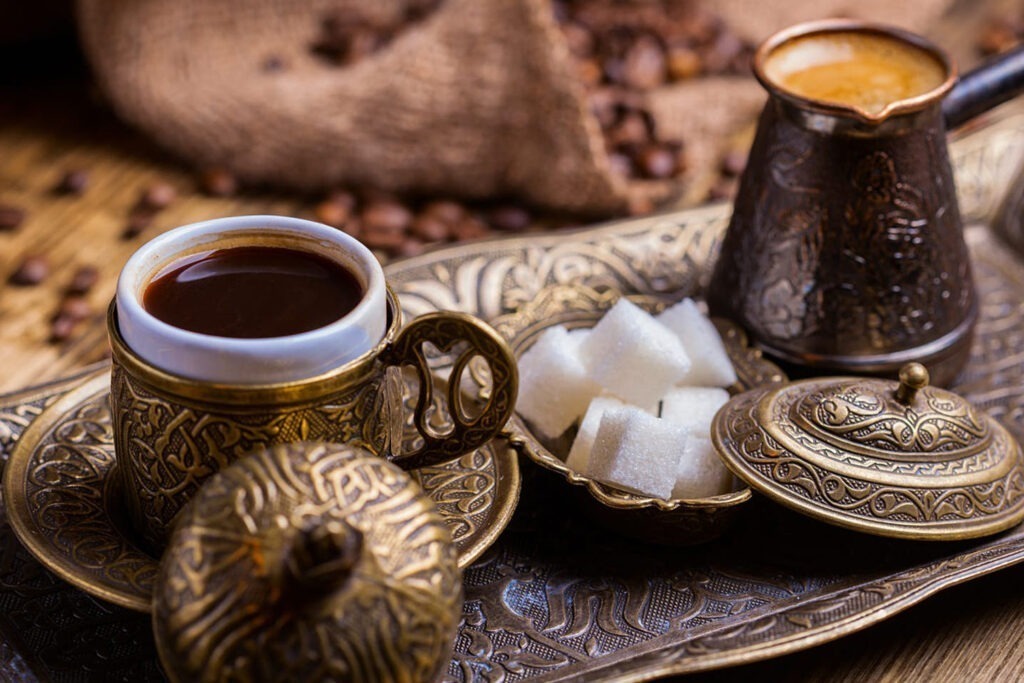Let's Talk
+1 (206) 937-3450
+1 (206) 937-3450

We now travel to the country of Turkey. Turkey is located partially in Asia and partially in Europe, making it geographically very unique. To the west lies the Mediterranean and Greece and to the south is Syria. Coffee seems to have arrived in Turkey in the 16th century (Ottoman Empire) and has an intrinsic fingerprint on the people and the culture.
Unlike Ethiopian coffee ceremony, which was covered in chapter one of this series, Turkish coffee ceremonies are not just dedicated to the house and guests or special occasions. In Turkey, coffee was first introduced in coffee houses and then later found its way into homes. Coffee permeates much of everyday life in Turkey, so much so that it was actually inscribed into the UNESCO list of Intangible Cultural Heritage of Humanities as part of Turkish Culture Heritage in 2013.
What generally coins a cup of good Turkish coffee? Strong aromatics, a full bodied foam and it is generally stronger than most brews as it is not filtered. A coffee with a good foam on it is said to be made well!
The roasted beans are ground in a mortar and pestle or more commonly in a hand mill or grinder. The Turkish coffee grind is unique in that they like a very fine texture almost like a powder or dust. Due to the fine grounds the coffee is drunk in small sips.
The Turkish add the sugar, ground coffee and water into the pot cold and heat them up together. Keep in mind they will ask you how sweet you want it:
Sade or Sekersiz means without sugar
Orta means medium amount
Sekerli (shekerlay) means sweet
The heating process takes place by placing the traditional brewing vessel called at Cezves in hot sand. This heating process is said to bring out the flavors and aromas as well as heating it quicker. There are still many places that will use a stove to heat the mixture using the Cezves.

There is no filtration process in Turkish coffee. There is a reason they have ground the coffee to such a fine grade. This is part of the drinking experience and makes for a texture much like a Matcha tea that is foamy and thick, but of course with a completely different set of aromas and effects. The coffee is poured into porcelain cups that are famous in Turkey, often decorated with elaborate colors and patterns.

Coffee is usually served with a decadent turkish delight and a glass of water to clear your palette. There are coffee dens that combine the experience of smoking hookahs and your coffee experience, both very old practices in this region of the world. Hookah smoking traditions mirror coffee traditions in that they are symbolic to bringing people together and strengthening bonds.

Feeling ready to tour Turkey? The coffee will keep you feeling alive for all the wonderful culture there is to absorb!
+1 (206) 937-3450
tony@pugetground.com